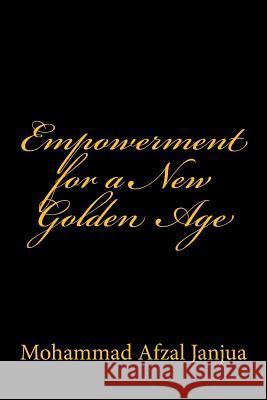Empowerment for a New Golden Age » książka
Empowerment for a New Golden Age
ISBN-13: 9780692298503 / Angielski / Miękka / 2014 / 166 str.
Empowerment for a New Golden Age narrates the story of the greatest civilization that the world has ever seen. This civilization was inspired by the Qur'anic guidance which insisted on consciousness and knowledge, and engendered among its followers a spirit of intellectual curiosity and independent inquiry, ultimately resulting in that splendid era of learning and scientific research which distinguished the world of Islam at the height of its cultural vigor for over 800 years, between 8th and 17th centuries; and the culture thus fostered by the Qur'an penetrated in countless ways into the mind of medieval Europe and gave rise to that revival of Western culture which we call the Renaissance, and thus became in the course of time largely responsible for the birth of what is described as the "age of science." This work highlights the path that led to fashioning of this great civilization and the factors that set off its latter decline. This civilization flourished in a continental super state which was home to hundreds of millions of people, of different creeds and ethnic origins. It fostered invention and prosperity, developed leadership based on meritocracy, not inheritance and harnessed the full capabilities of its very diverse population. Universal justice was its hallmark as it nurtured culture, sustainability, diversity and courage. Many of the famed metropolises of the medieval times, with schools and libraries, lit streets and running water, mosques and hospitals, gardens and palaces; cities such as Baghdad, Damascus, Cordoba, Granada, and Cairo were part of this civilization. Today's technology industry owes its existence to the contributions made by master mathematicians from this civilization as its Sufi philosophers like Rumi and Ibn Al Arabi shaped our ideas about self and truth and its leaders like Suleiman the Magnificent shaped our concepts of tolerance and civic leadership. In the modern world social injustice, political hypocrisy and financial exploitation are a norm. Today, the lives of the weak are considered expendable and justice is often contingent on one's economic might and skin color. Increasingly the poor and dispossessed are castigated for their misery. Empowerment for A New Golden Age posits that the impetus which inspired the civilization eulogized in this book, if considered with an open mind, can serve as a guide for addressing much of the issues faced by mankind today.











